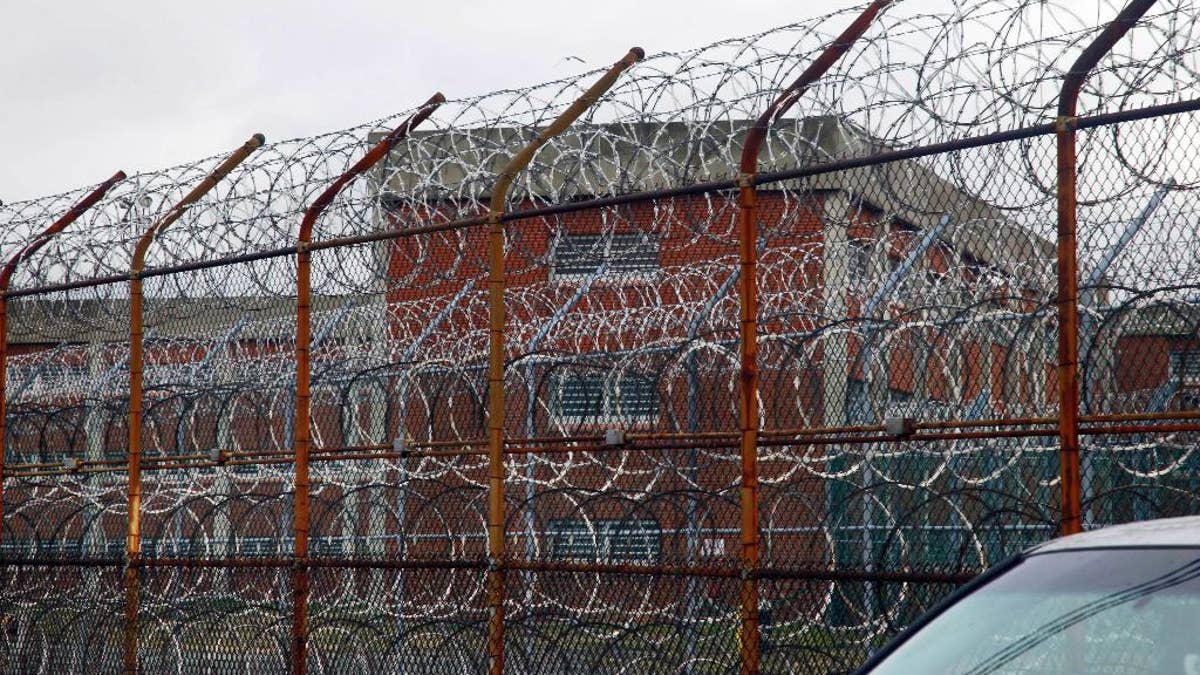
FILE - This March 16, 2011 file photo shows a barbed wire fence outside inmate housing on New York's Rikers Island correctional facility in New York. A report released Thursday, Jan. 14, 2015 by the New York City Department of Investigation says the recruiting, hiring and screening of New York City’s jail guards is riddled with problems such as guards with gang ties, previous arrests and otherwise checkered histories. (AP Photo/Bebeto Matthews, File) (The Associated Press)
A nationwide study conducted by the Urban Institute's Justice Policy Center shows Latinos are undercounted in the criminal justice system across the U.S. Only one state, Alaska, compiles data on the number of Latinos arrested, imprisoned, on probation or on parole broken down by race and ethnicity for each offense category.
The report, titled "The Alarming Lack of Data on Latinos in the Criminal Justice System," was done in cooperation with the advocacy groups Latino Justice and the Public Welfare Foundation. It was released Thursday.
Related News
According to the survey, arrest records in 40 states reported race (white, black and other) but only 15 reported ethnicity.
Given the sizable share of Latinos among the U.S. population, the authors of the study concluded it is the group most affected when states ignore ethnicity.
“Leaving Latinos out when documenting the consequences of the American criminal justice system means our data tells an incomplete story,” said Ryan King, one of the researchers involved in the study, to USA Today.
“As a result of that missing, inaccurate, or insufficient data, their voices are absent from the conversation when policy reforms are developed,” he added.
In their recommendations, the authors write that the states should at least meet current Census Bureau standards and collect race and ethnicity data separately.
“This would result in more descriptive and accurate subcategories, such as “non-Hispanic white” and “Hispanic black,” they conclude.
One surprising finding was that even many of the most heavily Latino states collect inaccurate or complete data because all the relevant agencies -- law enforcement, department of corrections, parole board, etc. -- do not coordinate their efforts.
Texas, Oregon and Oklahoma are, in addition to Alaska, the states that better do the job.
The authors of the study warn that without comprehensive data on Latino in the criminal justice system policymakers cannot address their specific needs.
"This affects how we look at programs to help with re-entry (to society). And that impacts recidivism," said Latino Justice’s Juan Cartagena, as quoted by USA Today. "We need to get a good handle on this."







































